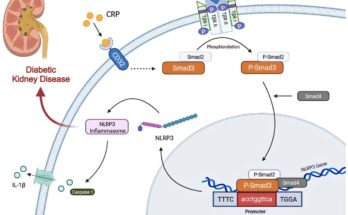
Bisphenol A (BPA) administration is associated with reduced peripheral insulin sensitivity among healthy adults, according to a study presented at the annual meeting of the American Diabetes Association, held from June 21 to 24 in Orlando, Florida.
Adam Seal, Ph.D., from the California Polytechnic State University in San Luis Obispo, and colleagues examined the effects of oral BPA administration on peripheral insulin sensitivity in 40 nonhabitually active, healthy adults. Participants completed a two-day baseline energy balance diet low in bisphenols and were then randomly assigned to a four-day energy balance diet plus oral BPA administration at 50 µg/kg body weight (BPA-50) or four-day energy balance diet plus oral placebo (PL) administration.
The researchers found that body weight was not significantly different between the PL and BPA-50 groups from baseline to four days. Fasting blood glucose did not differ significantly between the groups from baseline to four days. Urine BPA was significantly higher following BPA-50 than PL. Peripheral insulin sensitivity decreased significantly with BPA-50 and remained stable in PL from baseline to four days.
“Given that diabetes is a leading cause of death in the United States, it is crucial to understand even the smallest factors that contribute to the disease,” co-author Todd Hagobian, Ph.D., also from the California Polytechnic State University, said in a statement.
One author disclosed ties to Weight Watchers International.
© 2024 HealthDay. All rights reserved.
Citation:
Bisphenol A linked to reduced peripheral insulin sensitivity (2024, June 27)
retrieved 27 June 2024
from https://medicalxpress.com/news/2024-06-bisphenol-linked-peripheral-insulin-sensitivity.html
This document is subject to copyright. Apart from any fair dealing for the purpose of private study or research, no
part may be reproduced without the written permission. The content is provided for information purposes only.
Source link




